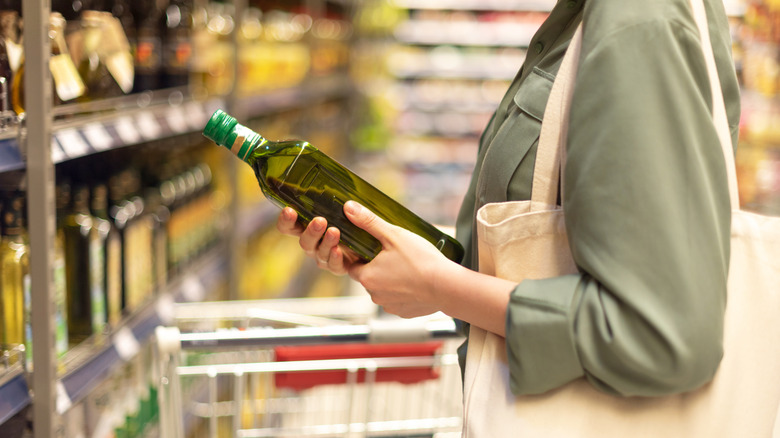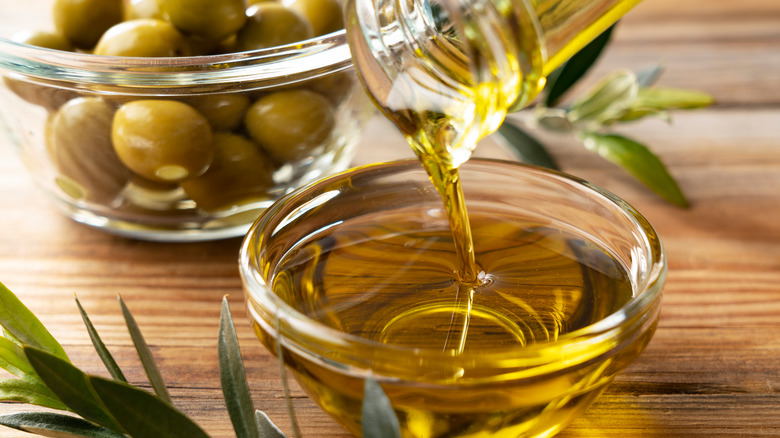The Storage Reason Chefs Avoid Buying Olive Oil From Supermarkets
We may receive a commission on purchases made from links.
Olive oil may seem like one of those things that you can stock up on when they're on discount and gradually use over the span of a few years. While that is true to a certain extent because olive oil's best-by date does have a window of a year or two, the same cannot be said for its quality. Olive oil is very susceptible to deteriorating with time — especially once the bottle is opened — and though rancid olive oil isn't exactly harmful, it's not going to taste the way that good quality olive oil should.
Depending on the brand, olive oil has a shelf life of two to four years from the date of harvest. Once it is opened, however, the clock starts ticking much faster. As the open oil is exposed to heat, air, and light, oxidization can make the oil go rancid within three to six months.
This is why it's important to pay attention to the quality of olive oil from the very beginning to ensure that it's as fresh as possible and that includes taking into consideration where you buy the oil from. Chefs for one, never go olive oil shopping at big stores. Chef Alice Waters tells MasterClass that she only buys olive oil from stores that sell a high volume of the oil, and it's not because they have a superior selection of oils to choose from. Rather, it's because they pay more attention to storing olive oil properly.
Supermarkets may not be storing olive oil properly
The way olive oil is stored affects its quality long before the bottle is opened. If you're buying olive oil from supermarkets that don't store the bottles correctly, chances are that your olive oil has already deteriorated in quality before you've even had a chance to unscrew the cap.
Ideally, olive should be stored in a cool and dark environment similar to a wine cellar where the temperature can be controlled. This, Chef Alice Waters says to MasterClass, is a hard job for huge supermarkets to do. Instead, she shops at specialty stores where the oil isn't going to sit on a shelf that's exposed to harsh light for too long and prefers "a store that has a big turnover of olive oil in it—maybe more like a delicatessen where olive oil is something really valuable."
Because olive oil doesn't age very well, it's important to store it well even after you've bought it. To keep the oil from deteriorating at a faster rate, keep the oil away from light — both artificial and natural — and minimize its exposure to heat including the warmth that radiates from a stove (via Martha Stewart). Make sure that the cap is screwed on tightly between each use and reduce the oil's exposure to air where possible. Olive oil is tricky to store but these little steps and chef Waters' valuable shopping advice will go a long way in making sure that you're getting the most out of the olive oil that you're buying.

